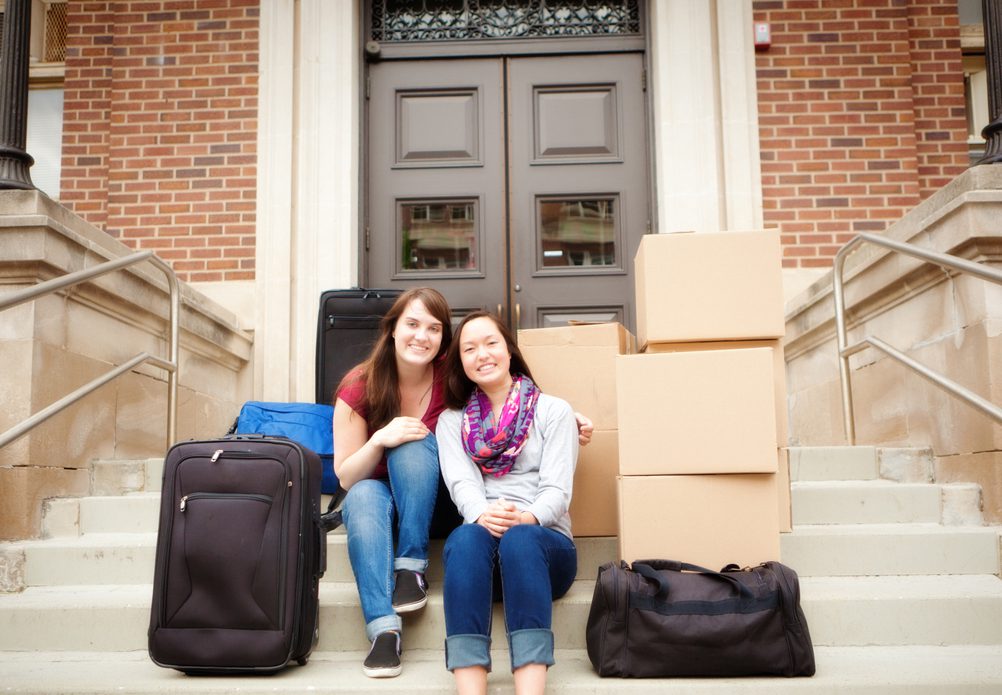The transition from high school graduate to new college student is an exciting milestone, and moving away from home is part of the process for many. AAA Oregon/Idaho recommends a review of your insurance for college students.
Homeowners & Renters Policies
Some homeowners and/or renters policies protect a college student’s personal possessions away from home if they live on-campus and the student’s property is stolen or damaged. Other policies may limit the amount of coverage for a college student’s belongings to 10 percent of the total amount of a policy’s overall coverage for personal possessions. So if parents have $100,000 worth of personal possessions insurance for the family’s primary residence, for example, only $10,000 would be applicable to possessions in their youngster’s dorm room. In both cases, the student’s possessions would be covered for the same disasters covered in a standard homeowners or renters insurance policy. These perils would include, fire, theft, vandalism and natural disasters such as a hurricane. The student would not be covered for typical college mishaps like accidentally spilling coffee on an electronic device.

Homeowners and renters insurance tips for college students
- If your student live in a dorm, some personal possessions may be covered under a parents’ homeowners or renters insurance policies. Expensive items such as computers and other electronics may be subject to coverage limits under a standard homeowners policy, and some states require a special student endorsement.
- If you student is living off-campus, purchase renters insurance. Renters insurance is necessary to protect them and their belongings. It can also protect against liability in the event that someone accidentally gets injured on the property.
- Leave valuables at home. While some valuable items, such as laptops, may be needed on campus, items such as expensive jewelry may be best left at home.
- Create a ‘dorm inventory‘—a list of items the student plans to bring to school, along with its estimated value. Be sure to note specific high-value items such as a computer, camera or musical instrument and scan receipts into the system in order to document their retail value. Having an up-to-date inventory can help determine how much insurance to purchase. Also, it helps settle insurance claims faster in the event of theft, fire or other types of disasters.
- Safeguard items from theft. Dorm room doors should stay locked and never leave belongings unattended on campus. According to the Insurance Information Institute, the library, dining hall, and other public places are the primary areas where property theft occurs on campus.

Personal Property Floater
Items such as jewelry and musical instruments may be subject to dollar limits under a standard homeowners or renters policy. If these limits are too low, parents may want to consider buying a personal property floater or an endorsement to their homeowners or renters policy. By doing so, this provides a higher amount of insurance and broader coverage. Most jewelry floaters, for instance, include additional coverage for “mysterious disappearance.”
Stand-Alone Insurance Policies for College Students
Car Care At College
- Check and maintain tires. They should check their tires at least once a month using a tire pressure gauge.
- Maintenance schedule. Regular maintenance helps extend the life of the vehicle and helps mitigate repair cost. Also, review the owner’s manual and the need for oil changes, replacing filters, batteries and brakes.
- Identify nearest repair shop. Find a trusted repair shop near the school. Visit www.aaa.com/Repair to locate nearby AAA Approved Auto Repair facilities.
- Prepare for emergencies. Breakdowns and other roadside emergencies happen, so make sure the vehicle has a well-stocked roadside emergency kit. Important items include:
- a flashlight with extra batteries
- jumper cables
- first-aid kit
- bottled water
- rags or paper towels
- a tire pressure gauge
- a blanket
- granola or energy bars
- a selection of basic hand tools.
- In areas with winter weather, add an ice scraper, snow brush, and kitty litter (increases traction if stuck in snow)

Auto Insurance Tips
- Coverage may depend on whether students leave home or stay in the area. If bringing a car to campus and remaining on a parents’ policy, coverage likely still applies. If attending an out-of-state school, make sure insurance coverage follows you.
- Check with your insurance agent. To see what discounts you may qualify for and to ensure you have adequate coverage while away at school, contact your AAA insurance agent.

